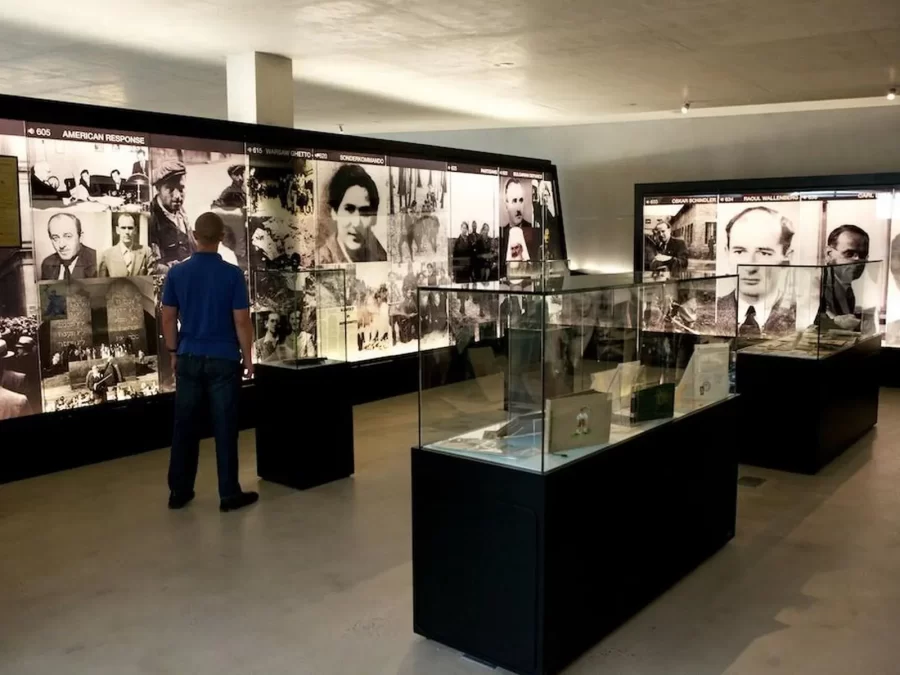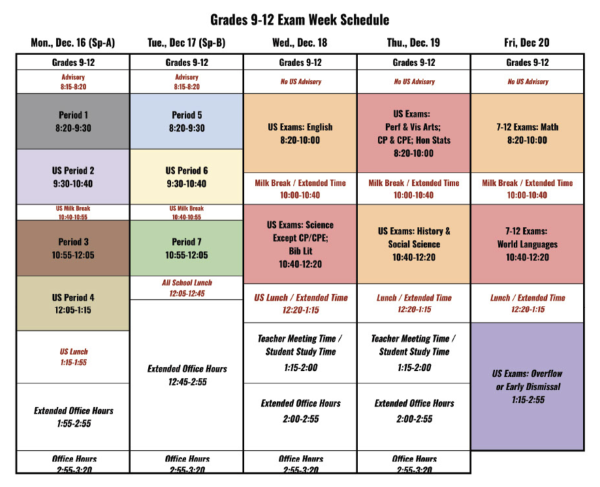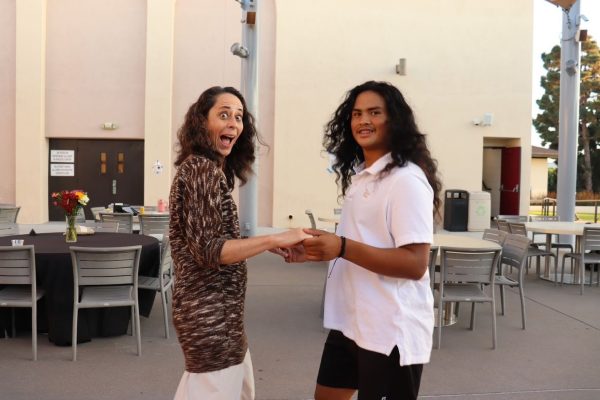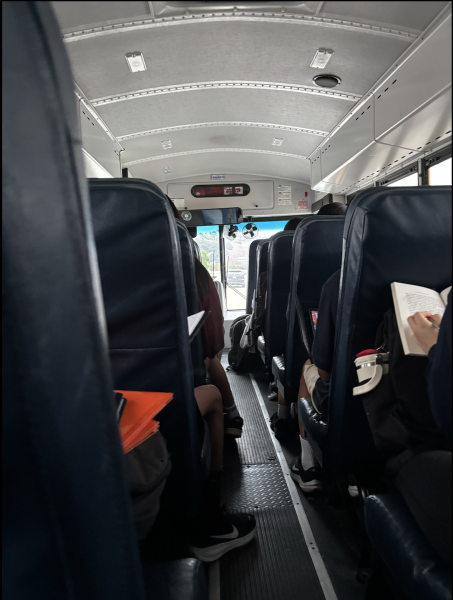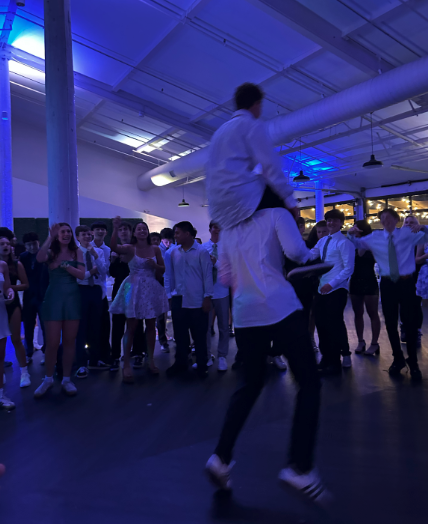9th Grade Visits Holocaust Museum LA
After a 3 year COVID-19 hiatus, the annual trip resumes
https://www.discoverlosangeles.com/things-to-do/holocaust-museum-la
Teachers took students’ phones so they could engage with the exhibits. Students filled out a booklet and wrote a reflection.
For the first time since 2019, 9th graders visited the Holocaust Museum LA on February 28. As part of the Modern World History curriculum, students learned from exhibits and listen to survivors’ stories. Ariadne Georgiou (‘26) said, “It really put into perspective all the things that we’ve been learning and how they played out outside of a history book.”
9th graders had the opportunity to meet two Holocaust survivors, Louise and Paul (they did not share their last names), and explore the museum’s different sections. Ariadne described something she learned from listening to Paul’s story: “Although the things that happened were atrocious, the atrocities were committed by the government and the people who supported the organization at the time. And he doesn’t hold it against the modern German people. And I feel like that’s like the Nelson Mandela quote about forgiving your oppressor.” Louise shared that during the Holocaust, she was hidden in the upstairs part of another family’s house. Nazis came in one day and searched the basement and the first floor, but they didn’t find her. She remembers it vividly despite being 4 years old, said Sydney Mafong (‘26)
Honors U.S. History teacher Mr. Matthew Valji said, “It’s very dark, emotionally challenging, sensitive historical content, but I felt like our students handled it with maturity and they stayed very focused and they were really thoughtful about what they were doing.” Modern World History teacher Mrs. Smith agreed, “They really rose to the occasion in the way we had hoped and wanted. And so we were proud of them.”
Lela said, “I was talking to my friends and we were talking about how we wish it was a two-day trip because it was so much interesting information.” The bus rides to and from the museum lasted a total of seven hours so students were only able to tour the museum for two hours, she explained.
Many administrators and teachers joined the trip. Mr. Valji said, “It meant a lot that they took time from their busy day to support the work of the 9th-grade Modern World History team and to support the museum and the messages that were being promoted by the field trip.”
Administrators Head of School Mr. Ron Kim and Assistant Head of School Mr. Brian Ogden attended. In addition, Chair of Religion and Ethics Dr. Regina Ballard, Religion and Ethics/Global Education Initiative teacher Dr. David Moseley, and Director of Diversity, Equity, Inclusion, and Justice Mr. David Thompson joined. Other attendees were Director of Counseling Mrs. Megan Broderick, Director of Student-Athlete and Coaching Development Mr. Shane Walton.
The School’s History department has made a commitment to focus on diversity, equity, inclusion, and justice and to center voices that are not always heard while teaching, Mr. Valji said. “Part of that conversation is about antisemitism. Part of the conversation is about the Holocaust. And part of that conversation is about discrimination. All of those things are front and center in the work of the museum,” he said.
COVID-19 made the field trip for the past three classes of 9th graders unfeasible, and in that time, the School has experienced instances of antisemitism. Mrs. Smith said, “it wasn’t organized in a response to that, but certainly profoundly important given the things that have happened. And our hope was that kids would walk away with a better understanding of the roots of antisemitism and how they relate to the Holocaust and then the ways in which antisemitism is still alive and well today, unfortunately.” Mr. Valji agreed, “I think [the field trip] is important, especially in the context of increasing antisemitism nationally, locally, and also antisemitic incidents in our own community.”
Students recognize the importance of the field trip as well. Ariadne said, “When you visit a museum, you’re so surrounded by the situation and the reality is that it’s hard for people to not take [the Holocaust] seriously. And so people who otherwise might have a hard time taking it seriously in class definitely had to come to terms with the situation and actually focus on it when it was all around them.” Lela said, “It is important to recognize the history [of the Holocaust] because it is a part of our history. And we don’t want the Holocaust to ever repeat again. We can’t completely stop it, but it is important to know what happened and how it occurred.”
The School has demonstrated its commitment to the Holocaust Museum LA’s visits. Mrs. Smith said, “We’ve already booked the museum for next year. So it’s something that the school is committed to doing, which is great. And the hope is that barring another pandemic, it will happen regularly every year.”
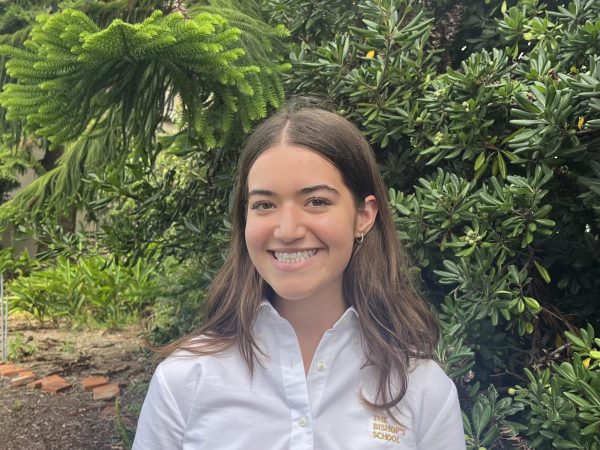
Emeraude is a senior and this is her second year on The Tower. This year, she is a Content Editor and she loves covering campus events and trends. Along...


